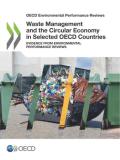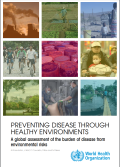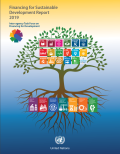This policy brief Making Infrastructure Resource Efficient identifies a critical need to decouple economic growth from the extraction and use of natural resources. Increasing the resource efficiency of infrastructure can be a major driver of the transition to sustainable development.

Waste Management and the Circular Economy in Selected OECD Countries provides a cross-country review of waste, materials management and circular economy policies in selected OECD countries, drawing on OECD’s Environmental Performance Reviews during the period 2010-17.
This paper, Addressing the Challenge of Marine Plastic Litter Using Circular Economy Methods, states the possible solution of dealing with the current marine plastics through implementing circular economy practices. This, in conjunction with optimizing landfill management, will help to substantially reduce the amount of those plastics most likely to end up as marine plastic litter.

This report Preventing Disease Through Healthy Environments: A global assessment of the burden of disease from environmental risks presents a wide-ranging assessment and detailed findings to show by how much and in what ways improving the environment can promote health and well-being.

The 2019 Financing for Sustainable Development Report, the fourth report of the Inter-agency Task Force on Financing for Development, provides a comprehensive assessment of the state of sustainable finance, four years after the adoption of the Addis Ababa Action Agenda. The report warns that mobilizing sufficient financing remains a major challenge in implementing the 2030 Agenda for Sustainable Development. Despite signs of progress, investments that are critical to achieving the SDGs remain underfunded and parts of the multilateral system are under strain.
